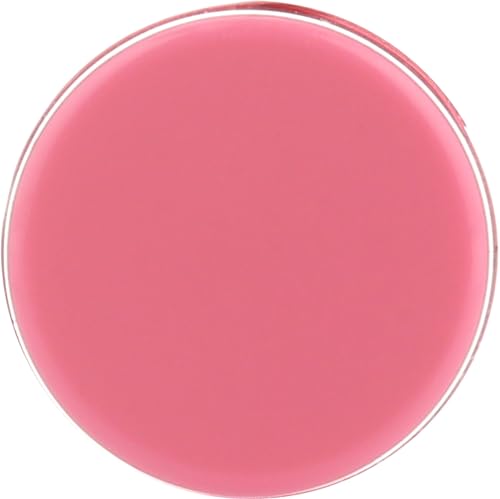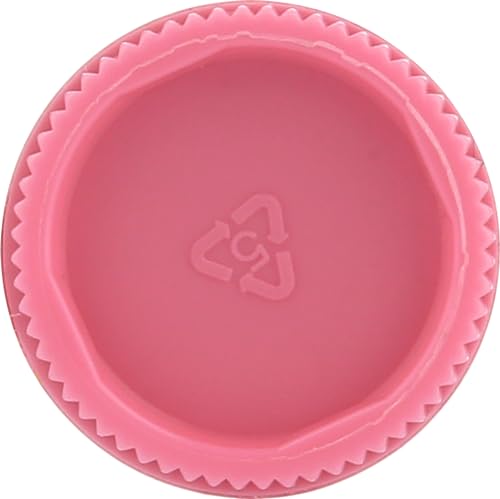





Dr. Bronner's Organic Cherry Blossom Lip Balm - Nourishing, Certified Organic - 0.15 oz


Cannabis Sativa (Hemp) Extract
High RiskCannabis sativa (hemp) extract is derived from the hemp plant, primarily used for its potential therapeutic properties. It contains various cannabinoids, flavonoids, and terpenes, which may contribute to its functional benefits in cosmetic and wellness products. The extract is often sought for its calming and anti-inflammatory effects.
Sustai Insights
Cannabis sativa (hemp) extract offers functional benefits such as anti-inflammatory properties and potential skin-soothing effects. It is derived from sustainably sourced hemp, contributing to its appeal. However, there are health risks associated with its use, including low concerns for carcinogenicity and neurotoxicity. Regulatory restrictions exist in certain jurisdictions, marking it as high risk overall. Safe usage should be practiced, particularly in sensitive applications, and alternatives like hemp seed oil may be considered for specific uses.
Tocopherol, D Alpha
Low RiskTocopherol, specifically d-alpha tocopherol, is a naturally occurring form of Vitamin E. It is commonly used in cosmetic and personal care products primarily for its antioxidant properties, helping to protect formulations from oxidation and extend shelf life.
Sustai Insights
D-alpha tocopherol provides effective antioxidant benefits, contributing to product stability. It is sustainably sourced and generally regarded as safe, with low concerns regarding carcinogenicity, allergies, and reproductive toxicity. However, there are minor concerns about endocrine disruption. Regulatory bodies have not imposed significant restrictions, indicating low overall risk. Recommended usage practices include adhering to established safe concentration thresholds. Alternatives, such as other forms of Vitamin E or plant-based antioxidants, may also be considered.
Simmondsia Chinensis (Jojoba)
Low RiskSimmondsia chinensis, commonly known as jojoba, is an oil derived from the seeds of the jojoba plant. It is commonly used in cosmetic formulations for its moisturizing properties, acting as an emollient and skin conditioning agent.
Sustai Insights
Jojoba oil offers functional benefits such as effective skin moisturization and is biodegradable, with sustainable sourcing practices. Health risks are low, with minimal concerns regarding carcinogenicity, allergies, and reproductive toxicity. Environmental impact is negligible, with no pollutant or bioaccumulation potential. Regulatory status is favorable with no significant restrictions noted. Overall, it is assessed as low risk, and safe usage practices should be maintained. Alternatives include other plant-derived oils like argan or almond oil, which may provide similar benefits.
Persea Gratissima (Avocado)
Low RiskPersea gratissima, commonly known as avocado, is a plant-derived ingredient often used in cosmetics for its moisturizing properties. It contains fatty acids, vitamins, and antioxidants that contribute to skin hydration and nourishment, making it a popular choice in skincare formulations.
Sustai Insights
Avocado offers functional benefits as an emollient, providing hydration and improving skin texture. It is sustainably sourced and biodegradable. Health risks are minimal, with low concerns for carcinogenicity, allergenic reactions, or reproductive toxicity. Environmentally, it poses low risks of pollution or bioaccumulation. Regulatory status is favorable with no restrictions. Overall, the ingredient is considered low risk, making it a safe choice for cosmetic applications.
Beeswax, Yellow
Low RiskBeeswax, yellow, is a natural wax produced by honeybees, primarily composed of esters of fatty acids and long-chain alcohols. It serves as an emulsifier, thickener, and stabilizer in cosmetic formulations, contributing to texture and consistency. It is commonly used in creams, balms, and lip products.
Sustai Insights
Beeswax provides functional benefits such as enhancing product texture and acting as a natural emulsifier, while also being biodegradable and sustainably sourced. Health risks are minimal, with low concerns for carcinogenicity, allergies, or irritations. Environmental impacts are also low, as it does not bioaccumulate. Regulatory status remains favorable with no current restrictions. Overall, the ingredient poses low risk, making it a suitable choice in cosmetic formulations.
Tocopherol, D Alpha
Low RiskTocopherol, specifically d-alpha tocopherol, is a naturally occurring form of Vitamin E. It is commonly used in cosmetic and personal care products primarily for its antioxidant properties, helping to protect formulations from oxidation and extend shelf life.
Sustai Insights
D-alpha tocopherol provides effective antioxidant benefits, contributing to product stability. It is sustainably sourced and generally regarded as safe, with low concerns regarding carcinogenicity, allergies, and reproductive toxicity. However, there are minor concerns about endocrine disruption. Regulatory bodies have not imposed significant restrictions, indicating low overall risk. Recommended usage practices include adhering to established safe concentration thresholds. Alternatives, such as other forms of Vitamin E or plant-based antioxidants, may also be considered.
Cannabis Sativa (Hemp) Extract
High RiskCannabis sativa (hemp) extract is derived from the hemp plant, primarily used for its potential therapeutic properties. It contains various cannabinoids, flavonoids, and terpenes, which may contribute to its functional benefits in cosmetic and wellness products. The extract is often sought for its calming and anti-inflammatory effects.
Sustai Insights
Cannabis sativa (hemp) extract offers functional benefits such as anti-inflammatory properties and potential skin-soothing effects. It is derived from sustainably sourced hemp, contributing to its appeal. However, there are health risks associated with its use, including low concerns for carcinogenicity and neurotoxicity. Regulatory restrictions exist in certain jurisdictions, marking it as high risk overall. Safe usage should be practiced, particularly in sensitive applications, and alternatives like hemp seed oil may be considered for specific uses.
Simmondsia Chinensis (Jojoba)
Low RiskSimmondsia chinensis, commonly known as jojoba, is an oil derived from the seeds of the jojoba plant. It is commonly used in cosmetic formulations for its moisturizing properties, acting as an emollient and skin conditioning agent.
Sustai Insights
Jojoba oil offers functional benefits such as effective skin moisturization and is biodegradable, with sustainable sourcing practices. Health risks are low, with minimal concerns regarding carcinogenicity, allergies, and reproductive toxicity. Environmental impact is negligible, with no pollutant or bioaccumulation potential. Regulatory status is favorable with no significant restrictions noted. Overall, it is assessed as low risk, and safe usage practices should be maintained. Alternatives include other plant-derived oils like argan or almond oil, which may provide similar benefits.
Persea Gratissima (Avocado)
Low RiskPersea gratissima, commonly known as avocado, is a plant-derived ingredient often used in cosmetics for its moisturizing properties. It contains fatty acids, vitamins, and antioxidants that contribute to skin hydration and nourishment, making it a popular choice in skincare formulations.
Sustai Insights
Avocado offers functional benefits as an emollient, providing hydration and improving skin texture. It is sustainably sourced and biodegradable. Health risks are minimal, with low concerns for carcinogenicity, allergenic reactions, or reproductive toxicity. Environmentally, it poses low risks of pollution or bioaccumulation. Regulatory status is favorable with no restrictions. Overall, the ingredient is considered low risk, making it a safe choice for cosmetic applications.
Beeswax, Yellow
Low RiskBeeswax, yellow, is a natural wax produced by honeybees, primarily composed of esters of fatty acids and long-chain alcohols. It serves as an emulsifier, thickener, and stabilizer in cosmetic formulations, contributing to texture and consistency. It is commonly used in creams, balms, and lip products.
Sustai Insights
Beeswax provides functional benefits such as enhancing product texture and acting as a natural emulsifier, while also being biodegradable and sustainably sourced. Health risks are minimal, with low concerns for carcinogenicity, allergies, or irritations. Environmental impacts are also low, as it does not bioaccumulate. Regulatory status remains favorable with no current restrictions. Overall, the ingredient poses low risk, making it a suitable choice in cosmetic formulations.
Experience the nourishing embrace of Dr. Bronner's Organic Cherry Blossom Lip Balm, designed for those who value both beauty and sustainability. This lip balm not only hydrates and soothes but also aligns with your commitment to ethical skincare.
- Natural Moisture: Enriched with avocado and jojoba oils, this balm deeply hydrates lips, leaving them soft and supple all day long.
- Sustainably Sourced: Made with organic ingredients and cruelty-free practices, supporting a healthier planet.
- Lightweight and Non-Greasy: The smooth texture glides on effortlessly without feeling heavy, perfect for daily use.
- Pleasant Aroma: Infused with a delightful cherry blossom flavor, it offers a refreshing sensory experience with every application.
- Certifications You Can Trust: Backed by third-party certifications ensuring organic integrity, making it a reliable choice for conscious consumers.
Choose Dr. Bronner's for a lip balm that cares for your lips and the planet.
Subscribe & Save with Sustai
- Best Price Guarantee: Always enjoy the lowest prices on sustainable home essentials.
- No Surprises: We’ll notify you before shipping. No hidden fees, ever.
- You’re in Charge: Change, pause, or cancel your subscription anytime with ease.
- Eco-Friendly Deliveries: Our grouped shipments mean less packaging and lower emissions.
Join us on a sustainable journey. Special offers for a limited time! Prices and promotions may change.
Recommended Products
Experience the nourishing embrace of Dr. Bronner's Organic Cherry Blossom Lip Balm, designed for those who value both beauty and sustainability. This lip balm not only hydrates and soothes but also aligns with your commitment to ethical skincare.
- Natural Moisture: Enriched with avocado and jojoba oils, this balm deeply hydrates lips, leaving them soft and supple all day long.
- Sustainably Sourced: Made with organic ingredients and cruelty-free practices, supporting a healthier planet.
- Lightweight and Non-Greasy: The smooth texture glides on effortlessly without feeling heavy, perfect for daily use.
- Pleasant Aroma: Infused with a delightful cherry blossom flavor, it offers a refreshing sensory experience with every application.
- Certifications You Can Trust: Backed by third-party certifications ensuring organic integrity, making it a reliable choice for conscious consumers.
Choose Dr. Bronner's for a lip balm that cares for your lips and the planet.

You can have at most 2 Sustainable Steals products in your cart
Customer Reviews
Customers’ View
Customers appreciate the natural formulation and ethical sourcing of Dr. Bronner's Organic Cherry Blossom Lip Balm. Many highlight the moisturizing properties, noting that it effectively hydrates and soothes dry lips without leaving a heavy residue. The inclusion of organic ingredients, such as avocado and jojoba oils, resonates with health-conscious users who value clean beauty products. Additionally, the brand's commitment to no animal testing aligns with the values of environmentally aware consumers. Overall, users find this lip balm to be a dependable choice that supports both their health and sustainability goals.
AI-generated from the text of customer reviewsThis product has no reviews yet.




